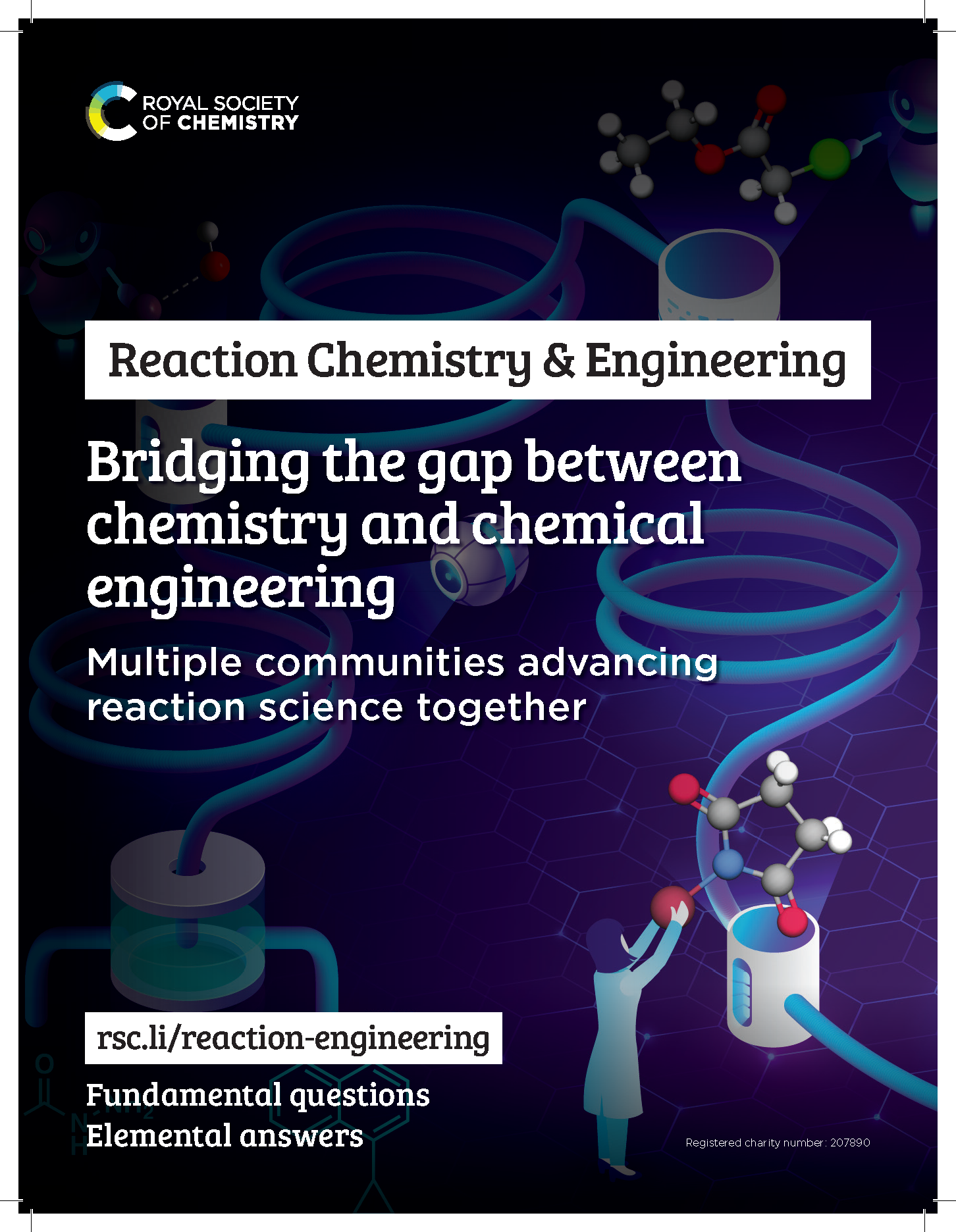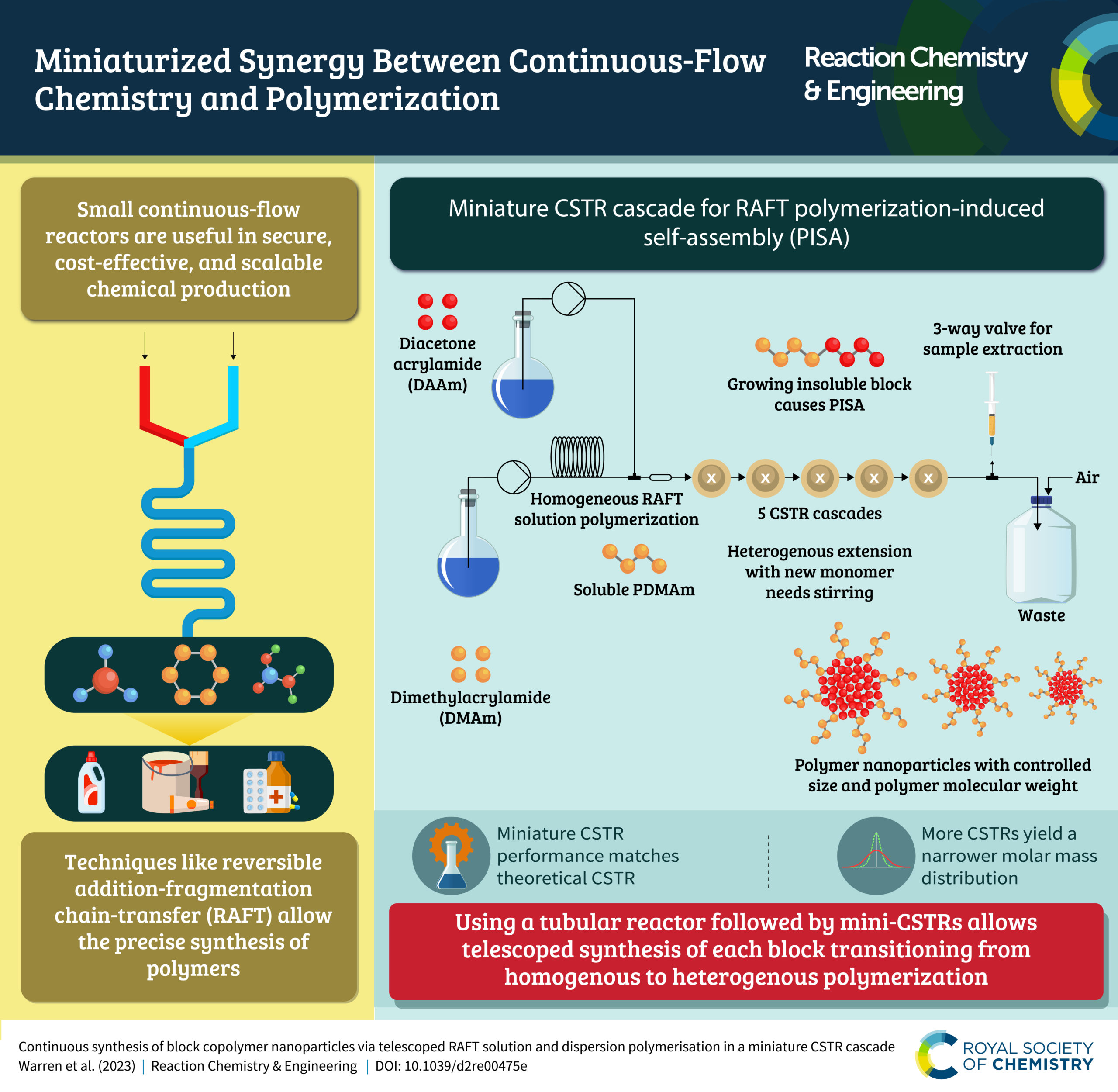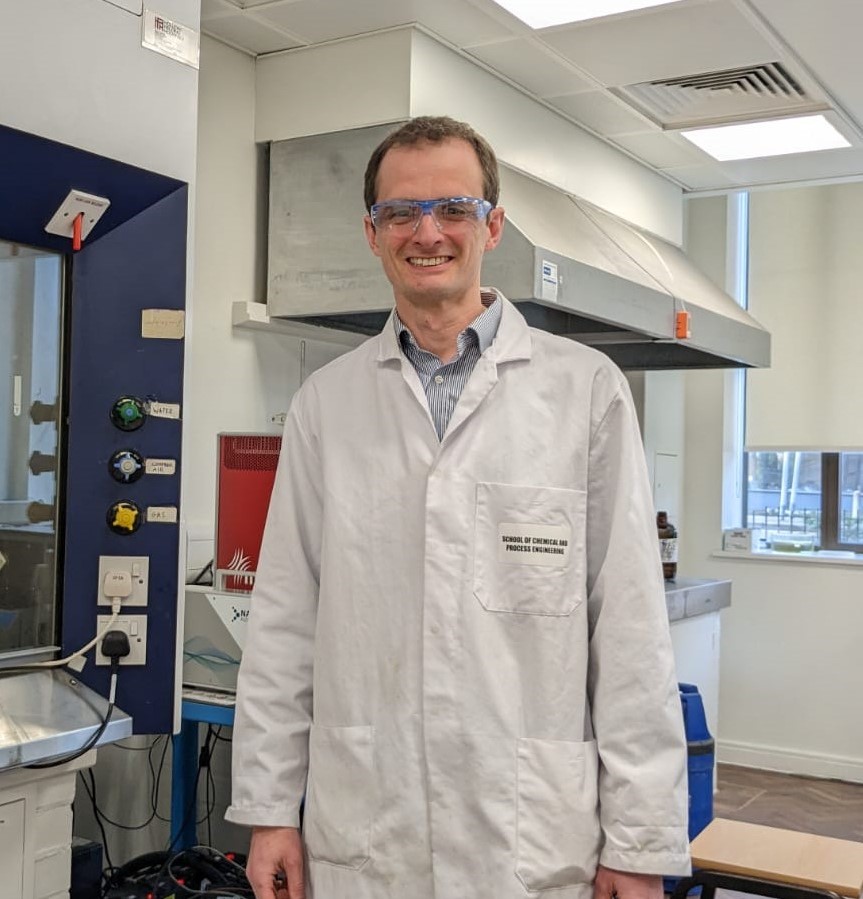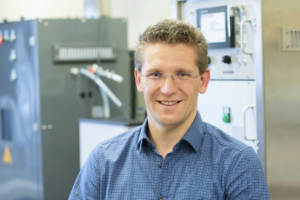We are thrilled to announce Dr Nicholas Warren (University of Leeds, UK) as the winner of the 2023 Reaction Chemistry & Engineering Outstanding Early-Career Paper Award.
This is in recognition of his leadership of the paper, ‘Continuous synthesis of block copolymer nanoparticles via telescoped RAFT solution and dispersion polymerisation in a miniature CSTR cascade‘, DOI: 10.1039/D2RE00475E
Check out this bespoke infographic summarising the paper:
Please join us in congratulating Dr Warren!
About the winner
Read our interview with Dr Nicholas Warren:
Can you briefly summarise your paper?
We design a flow reactor to facilitate continuous production of polymer nanoparticles using a process known as reversible addition-fragmentation polymerisation-induced self-assembly (RAFT-PISA). This chemistry enables rational control over polymer molecular weights, which then dictates nanoparticle size and morphology. By coupling with a flow reactor we demonstrate that further precision and reproducibility can be obtained. The fact that this polymerisation is heterogenous means good stirring is required, and the implementation of a mini-CSTR cascade is ideal. Furthermore, a careful understanding of how the residence time distribution affects the polymerisation enables an additional handle for controlling the properties of the product. Finally, we also implement a two stage “telescoped” polymerisation, whereby an initial solution polymerisation conducted in a tube is then fed into the CSTRs alongside the second monomer. The multi-scale nature of these flow platforms also enables scale-up of the product easily using the same platform.
What aspect of your work are you most excited about at the moment?
I’m most excited by the prospect of automating the whole process. This includes conducting machine learning directed closed-loop optimisation to target polymer products with defined characteristics. We have done something similar with solution polymerisation (Polym. Chem., 2022,13, 1576), and are now dealing with the various additional challenges presented with heterogeneous PISA systems! Watch this space!
Where do you see the field of continuous-flow chemistry in five years time?
I think the huge focus on automation is going to dominate the field. There is a huge amount of activity in this area and this is only going to grow. Our work on polymers has been recognised by the polymer community and I know there are several groups now exploiting flow for polymerisation.
How do you feel about Reaction Chemistry & Engineering as a place to publish research on this topic?
The balance between engineering and chemistry within Reaction Chemistry & Engineering means the articles can appeal across disciplines. This is enhancing the quality of interdisciplinary research in a highly symbiotic manner. By publishing my work in this journal I am confident it will be seen by a wide range of individuals and the new insights gained in dealing with polymerisation will provide solutions for other areas of chemistry.
How do you like to spend your time when not doing research?
With two very energetic kids, I spend a lot of time outside – mainly walking in the Peak District.
Can you share one piece of career-related advice for those beginning their research career?
Work with people you get on with, even if their research may not be directly aligned. By embracing new areas you’ll naturally begin to broaden your research as a whole. This causes a natural shift to independence.
|
Peter M. Pittaway, React. Chem. Eng., 2023,8, 707-717, DOI: 10.1039/D2RE00475E |
About the award
The aim of the Reaction Chemistry & Engineering Outstanding Early-Career Paper Award is to recognise a researcher in the earlier stages of their research career for their leadership in reporting original research published in the journal.
The journal Editorial Board award this prize annually, selecting the paper which they find to demonstrate the highest quality of research, as well as importance to the advancement of the field of reaction engineering, out of all qualifying papers published in the journal each year.
Eligibility
In order to be eligible for this award, the candidate must:
|
 |
Prize
The winner of the Reaction Chemistry & Engineering Outstanding Early-Career Paper Award will receive an engraved plaque, a bespoke infographic from Impact Science for the winning paper and £500 cash award that would be used for conference travel/attendance of their choice.
To have your paper considered for the 2024 Reaction Chemistry & Engineering Outstanding Early-Career Paper Award, indicate when prompted upon submission of your revised manuscript if a corresponding author of the paper fulfils the criteria to feature in the Emerging Investigator Series. If accepted, your paper will be added to the ongoing collection and will be considered for the award. Multiple eligible authors of a winning paper will share the prize fund equally. You can contact the editors at reactionchemeng-rsc@rsc.org if you have any queries.














